Armen Nurbekyan, Deputy Governor of the Central Bank of Armenia, believes that education is the basis for solving every problem. Drawing from his personal experience, he shared with Mediamax how quality education and the right educational institution can ensure a successful career and continuous growth.
Armen Nurbekyan pursued his master’s in business administration at the American University of Armenia (AUA), which opened the door for him to join the Central Bank of Armenia. After holding various significant positions over the course of his career, he was elected deputy governor of the Central Bank in December 2022.
Armen Nurbekyan is also lecturing in the Master of Science in Economics program at AUA. These classes take place at the Central Bank’s Dilijan Training and Research Center.
- Mr. Nurbekyan, could you share the journey that led you to your position as deputy governor of the Central Bank? What motivated you to pursue a career in the financial sector?
- I have a background in mathematics. I completed my undergraduate studies in the Faculty of Mathematics and Mechanics at Yerevan State University, where I continued on to pursue a master’s degree. Concurrently, I enrolled in the Master of Business Administration (MBA) program at AUA.
My transition into the financial sector felt almost natural. I consider myself fortunate to have met individuals willing to give people opportunities and who have also helped me express myself.
In my second year at AUA in 2010, I was offered a position at the Central Bank of Armenia. Initially, I joined the financial stability department, focusing primarily on stress-testing issues of banks.
Around two years later, I shifted my focus toward macroeconomic issues. During this time at the Central Bank, we dedicated efforts to enhancing our internal decision-making processes in monetary policy. This led to my assignment to the International Monetary Fund (IMF). Later, I left for Washington again for a 1.5-year secondment at the IMF. My responsibilities there centered on monitoring oil prices and analyzing global economic developments.
Upon my return to Armenia in 2015, I continued my career at the Research Department of the Central Bank. Over the following years, I served as the head of the Dilijan Training and Research Center of the Central Bank for two years and held the position of director of the Macroeconomic Department. In December 2022, I was elected deputy governor of the Central Bank by the National Assembly.
- What did studying at the AUA give you? How did it contribute to your professional growth?
- AUA stands out by providing students with extensive opportunities and expanding the boundaries of their thinking. When I enrolled at AUA with my background in mathematics, the educational approaches there helped me break the limitations inherent in my field. I can give a simple example of how this happens.
In all of the University’s master’s programs, there is a mandatory environmental course. I opted for the ornithology option, which led us to Lake Sevan to study birds. Such experiences, along with others offered by the University, profoundly shape students’ thinking and worldview in a positive manner.
At AUA, students frequently have the opportunity to meet with renowned individuals. Alexis Ohanian’s lecture left a lasting impression on me during my time there. Interactions with such figures inspire us to perceive the seemingly unattainable as achievable, thus dismantling our internal barriers once more.
- How did the education you received in the master’s program at AUA shape your future career?
- In the case of the MBA, networking is paramount. In this regard, AUA provides great opportunities, facilitated by its international connections and fellow students who are usually already seasoned managers.
As for my career, it began right at the University, and my example perfectly characterizes what I already hinted at: AUA is a place of opportunity.
I received a job offer from the Central Bank thanks to one of my professors at AUA. Seeing my potential, he became a link between me and the Central Bank. This offer paved the way for my future career.
- I know that after finishing your studies, you continued to teach in the MBA program of AUA, and later you also lectured in the University’s Master of Science in Economics (MSE) program. What particular issue does this educational program address?
- The MSE program at AUA started in 2013 and is implemented in Dilijan in collaboration with the Central Bank.
As an employer, the Central Bank attaches great importance to the role of high-quality specialists and invests in the formation of such a resource. In this sense, cooperation with AUAA is a natural fit, as both parties are uncompromising when it comes to high-quality education.
I can confidently say that the educational program fully justifies the goals set at its inception. All graduates find good jobs very quickly, effectively meeting the demand for skilled professionals.
Under the agreement between the Central Bank and AUA, the University will soon introduce doctoral programs (Ph.D.) in economics. This initiative will significantly contribute to bridging the educational gap in the field.
- Who can apply for AUA’s MSE program, and what can applicants anticipate from it?
- This educational program is for applicants seeking quality education in economics — acquiring both hard and soft skills, learning to think right, and analyzing a wide array of problems. Thanks to this, the career opportunities offered by the program are diverse and not limited to the financial market. Many alumni are doing a great job in information technology, risk management, data science, and other fields.
This master’s program is an excellent complement to undergraduate education, because while the bachelor’s studies focus on acquiring fundamental knowledge, the master’s degree applies this knowledge practically. At the same time, MSE provides opportunities for experimentation, program implementation, and exploration of new issues, which are essential for real development.
In our time, wide technical possibilities also pose a clear danger. Granting technical abilities before teaching critical thinking can make the person lose the ability to think, or at least stop developing it. In this sense, the MSE program ensures a balance between teaching thinking and providing technical opportunities.
- There is a global trend of decreasing applications for master’s programs, and an attempt to “replace” bachelor’s education with short courses that offer certificates upon completion. What benefits does a university education provide that a “certificate” education cannot?
- Indeed, formal education is being questioned today. The modern educational opportunities you mentioned are undoubtedly beneficial, but it is necessary to differentiate what the foundational education provides.
To me, one of the finest examples of quality education is the lecture series delivered by Nobel Prize-winning American physicist Richard Feynman at Cornell University. His method, simply writing complex concepts with chalk on a blackboard, continues to embody genuine education today, and let me explain why.
A quality education is like an adventure, where the professor is your guide and fellow students are companions with whom you overcome the difficult educational journey. Learning from one another and having a knowledgeable mentor to ask questions and provide guidance makes education dynamic and interactive. There are things you learn only by overcoming some difficulty: if you are not challenged, your results may not be as good. At the same time, you have companions and a leader who keep spirits high and prevent deviation from the path.
In the case of “certificate” education, everything may appear straightforward at first glance, but there is no dynamic and interactive engagement with the lecturer and classmates. This lack of interaction often makes people who start such courses leave halfway through them.
- Based on your own experience as a student, what advice would you give to today’s American University students to help them make the best use of their time?
- I remember from the years of studying at AUA that I always enjoyed taking part in the classes. International connections and visiting professors from abroad made it impossible to get bored at the University. Even now, as I interact with students, I observe that nothing has changed in this sense.
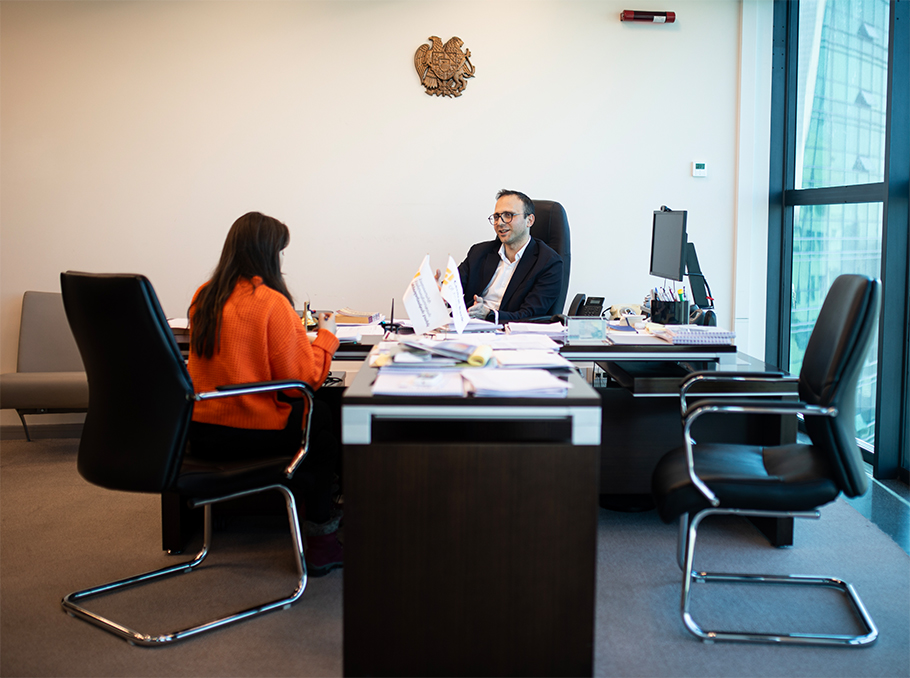 Gaiane Yenokian talks to Armen Nurbekyan
Gaiane Yenokian talks to Armen NurbekyanPhoto: Mediamax
I would also like to emphasize a key characteristic of the University: it provides students with as much knowledge and skills as they are willing to embrace. It is crucial for students not to be afraid of seizing opportunities and to maintain a desire to try something new.
On the other hand, one of the challenges of our times is the illusion of endless opportunities: pursuing every opportunity that appears can lead to achieving nothing substantial. Therefore, maintaining balance is critical: while exploring various interests is important, eventually, focusing on a specific direction is necessary to create additional value.
The good news is that AUA is not a punishing environment in the sense of trying something new and making mistakes.
- What role do educational programs like MSE play, in your view, in addressing the economic challenges currently facing Armenia?
- It is no secret that we live in a very unstable environment, and the question arises as to how the Central Bank should follow its mission to ensure stability. Reflecting on the tough decisions made at various times, it becomes evident that education underpins much of our discussions and actions.
In crisis situations, a person’s decision-making horizon shortens. The person starts searching for short-term solutions, not looking to the long-term anymore out of fear. While objective fear has a role, at the same time, neglecting long-term decisions for the country’s development is becoming a common problem.
In my view, fear often arises from a lack of knowledge. You are afraid when there is uncertainty, and you cannot understand the problem. However, the significant issues facing Armenia demand long-term solutions and investments.
If we analyze global economic growth, we will notice that there is no problem of lack of physical capital, and at the same time, the value of each newly created unit increasingly hinges on knowledge and human capital — that is, from the point of view of long-term solutions, education emerges as paramount.
If we look at Armenia’s IT sector, we will find that the problem is not generating demand for our products globally, but ensuring that education keeps pace with this progress. In this regard, MSE and similar educational programs play a pivotal role, and there is much work to be done in this direction. Given the uncertainties in Armenia, it is imperative that we make the highest quality decisions.
Gaiane Yenokian spoke with Armen Nurbekyan
Photos by Emin Aristakesyan
















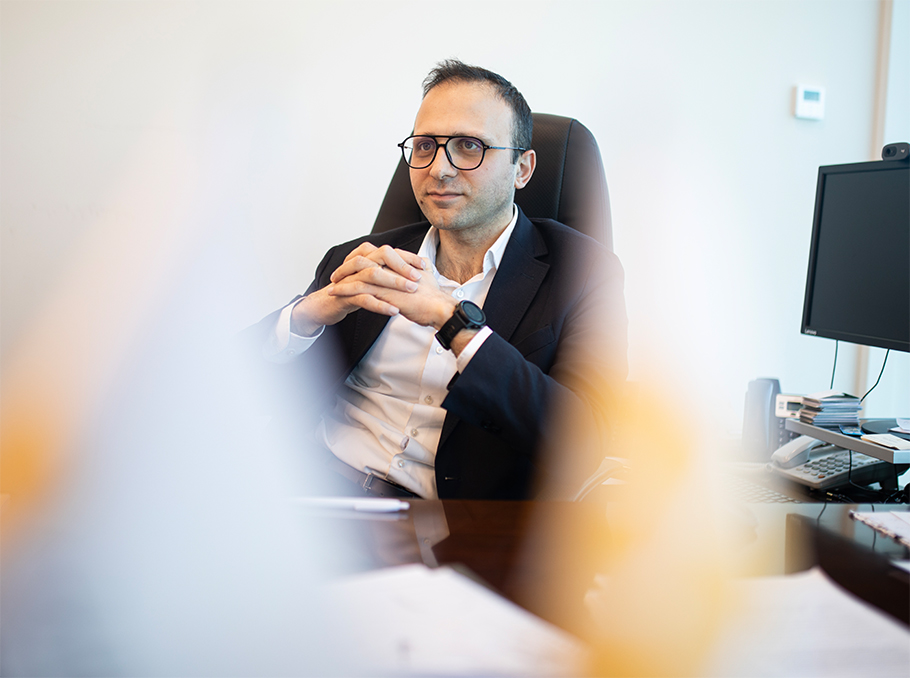

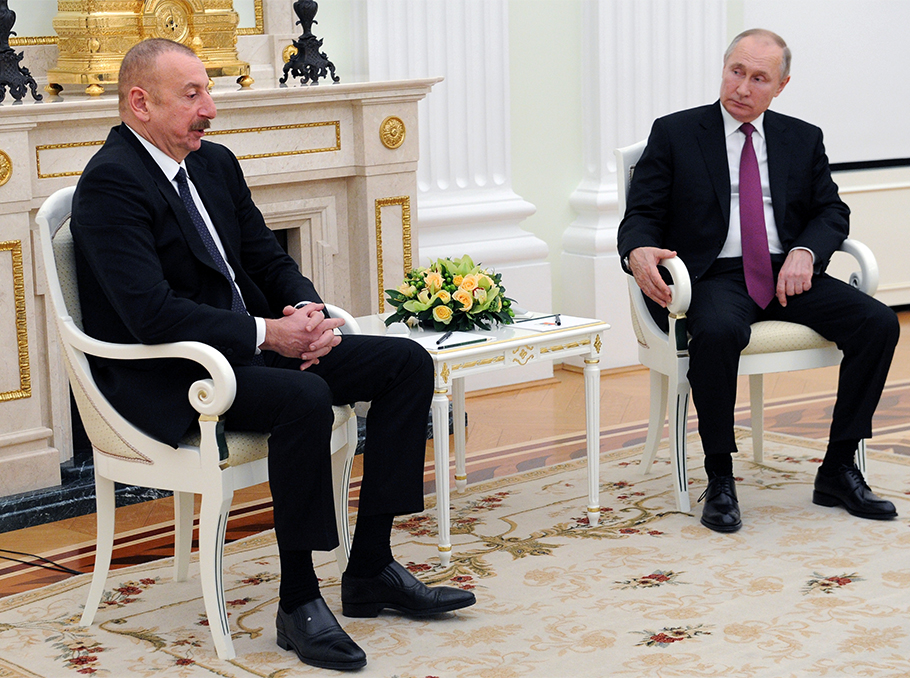
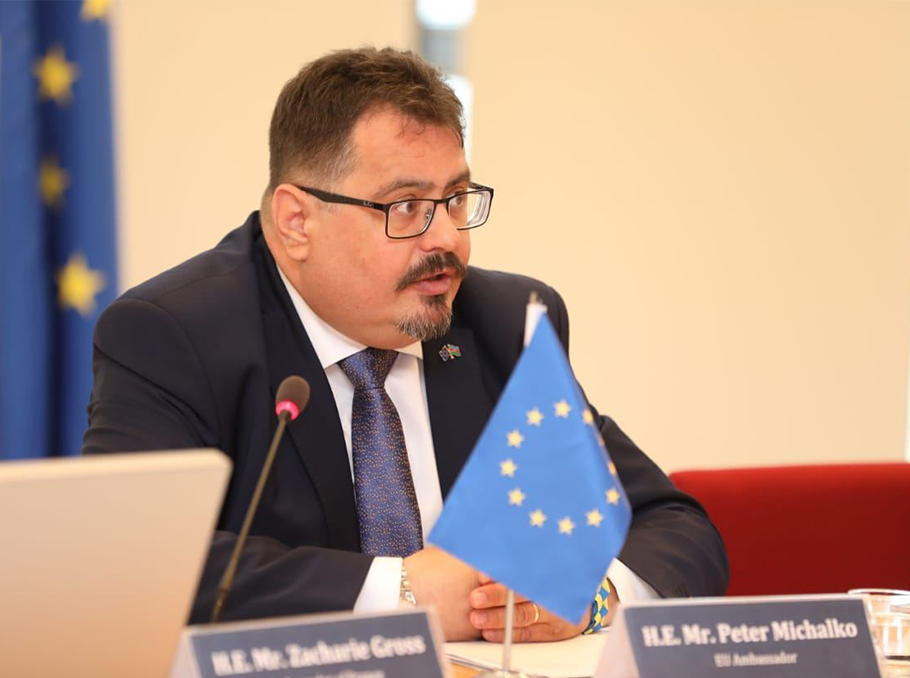
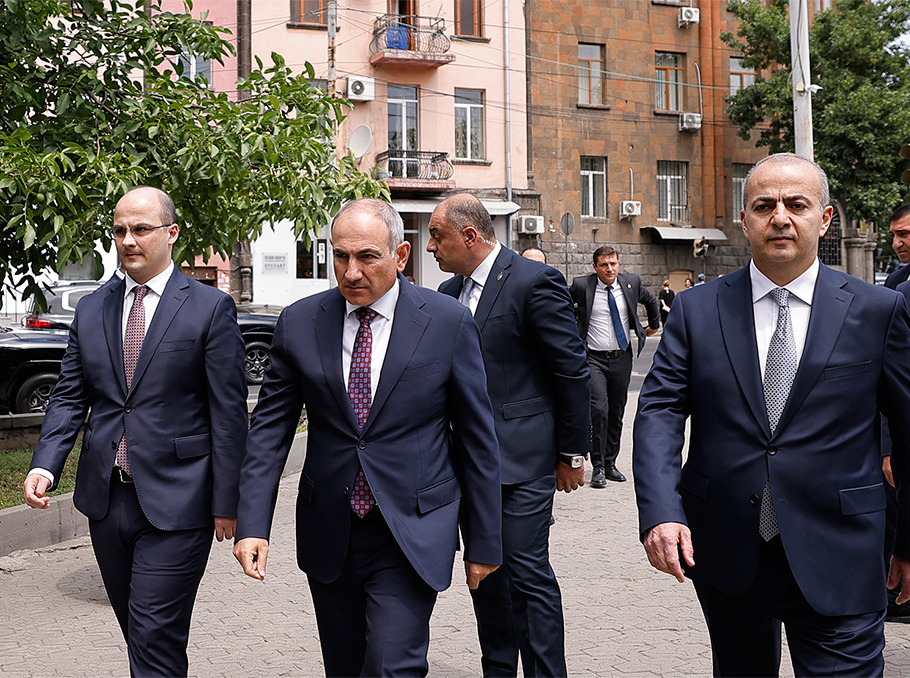







Comments
Dear visitors, You can place your opinion on the material using your Facebook account. Please, be polite and follow our simple rules: you are not allowed to make off - topic comments, place advertisements, use abusive and filthy language. The editorial staff reserves the right to moderate and delete comments in case of breach of the rules.